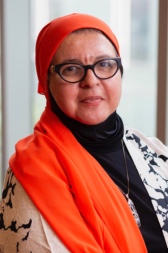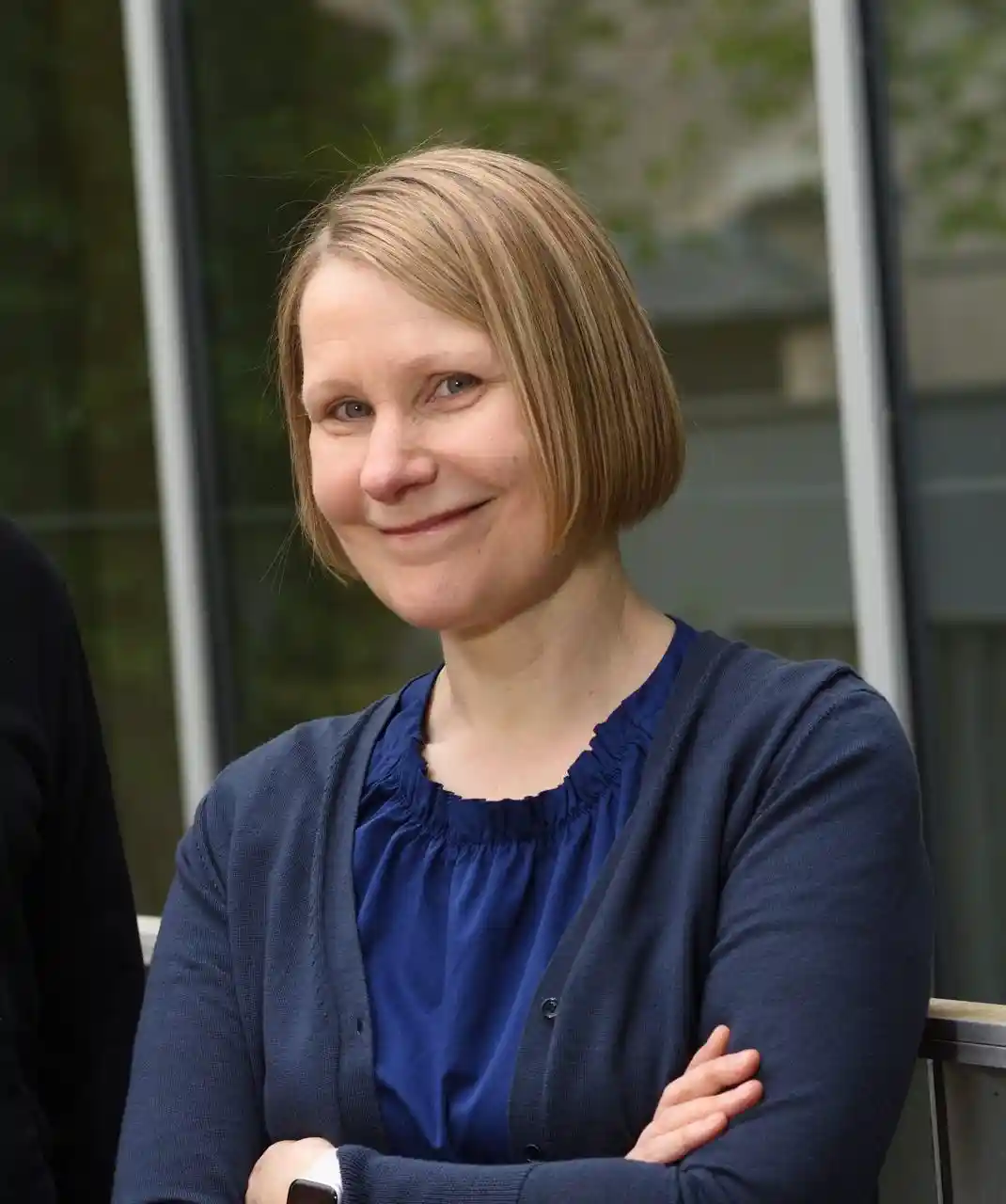Speakers


COURVILLE, Aaron
Université de Montréal, Canada
Aaron Courville is a professor in the Department of Computer Science and Operations Research (DIRO) at Université de Montréal. He has a PhD from the Robotics Institute, Carnegie Mellon University.Courville was an early contributor to deep learning: he is a founding member of Mila – Quebec Artificial Intelligence Institute, a fellow in CIFAR’s Learning in Machines & Brains program and, with Ian Goodfellow and Yoshua Bengio, co-wrote the seminal textbook on deep learning.His current research focuses on the development of deep learning models and methods. He is particularly interested in reinforcement learning, deep generative models and multimodal ML, as well as their applications, such as computer vision and natural language processing.Courville holds a Canada CIFAR AI Chair and a Canada Research Chair in Learning Representations that Generalize Systematically. His research has been supported by Microsoft Research, Samsung, Hitachi, Sony and Google (Focused Research Award).


DIAB, Mona
Carnegie Mellon University, USA
Dr. Mona Diab is a computer science professor and director of Carnegie Mellon University's Language Technologies Institute. Previously, she was a professor at George Washington University and a research scientist with Facebook AI. Before joining Meta, she led the Lex Conversational AI project within Amazon AWS AI. Her current focus is on Responsible AI and how to operationalize it for NLP technologies. Her interests span building robust technologies for low resource scenarios with a special interest in Arabic technologies, (mis) information propagation, computational socio-pragmatics, computational psycholinguistics, NLG evaluation metrics, Language modeling and resource creation. Mona has served the community in several capacities: Elected President of SIGLEX and SIGSemitic, and she currently serves as the elected VP for ACL SIGDAT, the board supporting EMNLP conferences. She has delivered tutorials and organized numerous workshops and panels around Arabic processing, Responsible NLP, Code Switching, etc. She is a cofounder of CADIM (Consortium on Arabic Dialect Modeling, previously known as Columbia University Arabic Dialects Modeling Group), in 2005, which served as a world renowned reference point on Arabic Language Technologies. Moreover she helped establish two research trends in NLP, namely computational approaches to Code Switching and Semantic Textual Similarity. She is also a founding member of the *SEM conference, one of the top tier conferences in NLP. Mona has published more than 250 peer reviewed articles.


GENTLES, Andrew
Stanford University, USA
I completed my undergraduate degree in physics at the University of Manchester, and my PhD in theoretical particle physics at the University of Southampton. Following this, I switched fields with a postdoc in evolutionary genetics at Queens Medical Centre, University of Nottingham; then in early computational analysis of the human genome at Stanford University.
After a foray into non-profit research, I became faculty member at Stanford in 2016. I am currently in the departments of Pathology, Medicine, and Biomedical Data Science. My group develops methods and resources for understanding disease biology from high dimensional datasets such as gene expression and spatial imaging. We are particularly interested in the role of the microenvironment in cancer, but also have projects in Alzheimer Disease.


KENTHAPADI, Krishnaram
Clinical AI, Oracle Health, USA
Krishnaram Kenthapadi is the Chief Scientist, Clinical AI at Oracle Health, where he leads the AI initiatives for Clinical Digital Assistant and other Oracle Health products. Previously, as the Chief AI Officer & Chief Scientist of Fiddler AI, he led initiatives on generative AI (e.g., Fiddler Auditor, an open-source library for evaluating & red-teaming LLMs before deployment; AI safety, observability & feedback mechanisms for LLMs in production), and on AI safety, alignment, observability, and trustworthiness, as well as the technical strategy, innovation, and thought leadership for Fiddler. Prior to that, he was a Principal Scientist at Amazon AWS AI, where he led the fairness, explainability, privacy, and model understanding initiatives in the Amazon AI platform, and shaped new initiatives such as Amazon SageMaker Clarify from inception to launch. Prior to joining Amazon, he led similar efforts at the LinkedIn AI team, and served as LinkedIn’s representative in Microsoft’s AI and Ethics in Engineering and Research (AETHER) Advisory Board. Previously, he was a Researcher at Microsoft Research Silicon Valley Lab. Krishnaram received his Ph.D. in Computer Science from Stanford University in 2006. He serves regularly on the senior program committees of FAccT, KDD, WWW, WSDM, and related conferences, and co-chaired the 2014 ACM Symposium on Computing for Development. His work has been recognized through awards at NAACL, WWW, SODA, CIKM, ICML AutoML workshop, and Microsoft’s AI/ML conference (MLADS). He has published 60+ papers, with 7000+ citations and filed 150+ patents (72 granted). He has presented tutorials on trustworthy generative AI, privacy, fairness, explainable AI, model monitoring, and responsible AI at forums such as ICML, KDD, WSDM, WWW, FAccT, and AAAI, given several invited industry talks, and instructed a course on responsible AI at Stanford.


KORHONEN, Anna
University of Cambridge, UK
Anna Korhonen is a Professor of Artificial Intelligence at the University of Cambridge (United Kingdom), where she directs the Centre for Human-Inspired Artificial Intelligence (CHIA) and co-directs the Language Technology Laboratory (LTL). Previously, she was a fellow of the Alan Turing Institute, a University Research Fellow of the Royal Society, and a fellow of the Japan Society for the Promotion of Science. Before her current position, she worked as a researcher at the National Institute of Informatics in Tokyo and the University of Pennsylvania. She earned her PhD in Computer Science at the University of Cambridge and holds master’s degrees in both Computer Science and Linguistics.
Professor Korhonen’s research focuses on human-centric AI and Natural Language Processing (NLP), drawing on human cognitive, social, and creative intelligence. Her work aims to promote social and global good, including efforts to make language technologies more geographically and socially inclusive and to apply AI techniques to address problems in health, the environment, and scientific research. She has led numerous large projects, served as a Programme Chair for leading NLP conferences, and acted as an action editor for top journals such as Computational Linguistics, Transactions of ACL, and the Journal of Artificial Intelligence Research.
She has also been the president of SIGLEX and a member of the Association for Computational Linguistics (ACL) Executive Board. Additionally, she is a Senior Research Fellow of Churchill College in Cambridge and a Fellow of the ACL, the European Lab for Learning and Intelligent Systems (ELLIS), and the Asia-Pacific Artificial Intelligence Association (AAIA).


LIU, Huan
Arizona State University, USA
Dr. Huan Liu is a Regents Professor and Ira A. Fulton Professor of Computer Science and Engineering at Arizona State University. He obtained his Ph.D. in Computer Science at University of Southern California and B.Eng. in Computer Science and Electrical Engineering at Shanghai JiaoTong University. Before he joined ASU, he worked at Telecom Australia Research Labs and was on the faculty at National University of Singapore. At Arizona State University, he was recognized for excellence in teaching and research in Computer Science and Engineering and received the 2014 President's Award for Innovation. He is the recipient of the ACM SIGKDD 2022 Innovation Award. His research interests are in data mining, machine learning, feature selection, social computing, social media mining, and artificial intelligence, investigating interdisciplinary problems that arise in many real-world, data-intensive applications with high-dimensional data of disparate forms such as social media. His well-cited publications include books, book chapters, encyclopedia entries as well as conference and journal papers. He is a co-author of a text, Social Media Mining: An Introduction, Cambridge University Press. He is a founding organizer of the International Conference Series on Social Computing, Behavioral-Cultural Modeling, and Prediction, Editor in Chief of ACM TIST, and Field Chief Editor of Frontiers in Big Data and its Specialty Chief Editor of Data Mining and Management. He is a Fellow of ACM, AAAI, AAAS, and IEEE.


VILLAVICENCIO, Aline
University of Exeter, UK
Aline Villavicencio is the Director of the Institute of Data Science and Artificial Intelligence, University of Exeter, affiliated to the Department of Computer Science, University of Sheffield (UK), and has a Fellowship at the Alan Turing Institute. Before these, she held academic positions in the Institute of Informatics, Federal University of Rio Grande do Sul, Brazil (between 2005 and 2021) and in the School of Computer Science and Electronic Engineering, University of Essex, UK.
She received her PhD from the University of Cambridge (UK) in 2001, and held postdoc positions at the University of Cambridge and University of Essex (UK). She was a Visiting Scholar at the Massachusetts Institute of Technology (USA, 2011-2012 and 2014-2015), at the École Normale Supérieure (France, 2014), an Erasmus-Mundus Visting Scholar at Saarland University (Germany in 2012/2013) and at the University of Bath (UK, 2006-2009). She held a Research Fellowship from the Brazilian National Council for Scientific and Technological Development (Brazil, 2009-2017). She is a member of the editorial board of Computational Linguistics, TACL and of JNLE. She was the PC Co-Chair of the 60th Meeting of the Association for Computational Linguistics (ACL 2022), and was the PC chair of CoNLL-2019, Senior Area Chair for ACL-2020 and ACL-2019 among others and General co-chair for the 2018 International Conference on Computational Processing of Portuguese. She was also a member of the NAACL board, SIGLEX board and of the program committees of various *ACL and AI conferences, and has co-chaired several *ACL workshops on Cognitive Aspects of Computational Language Acquisition and on Multiword Expressions. Her research interests include lexical semantics, multilinguality, multiword expressions and cognitively motivated NLP, and has co-edited special issues and books dedicated to these topics.
